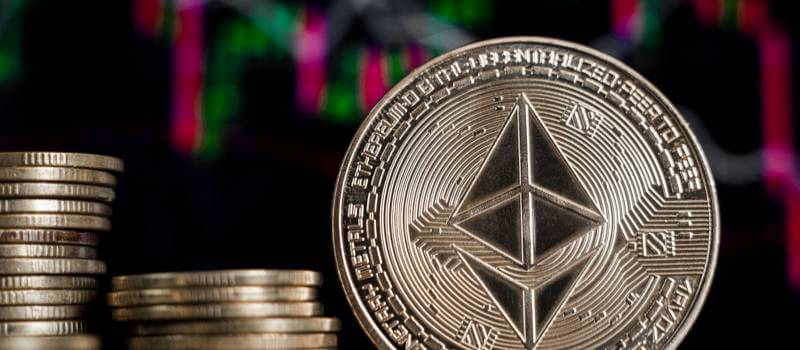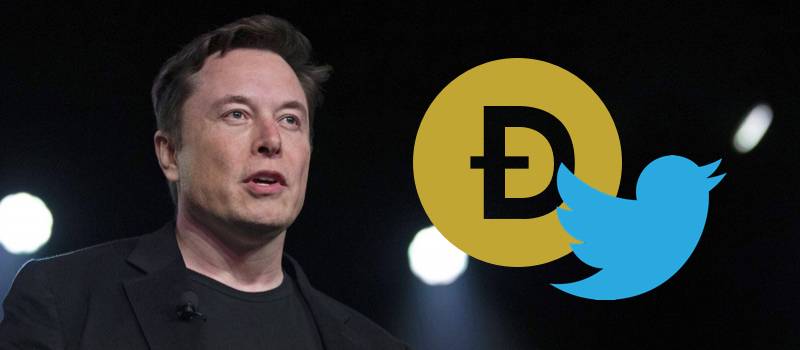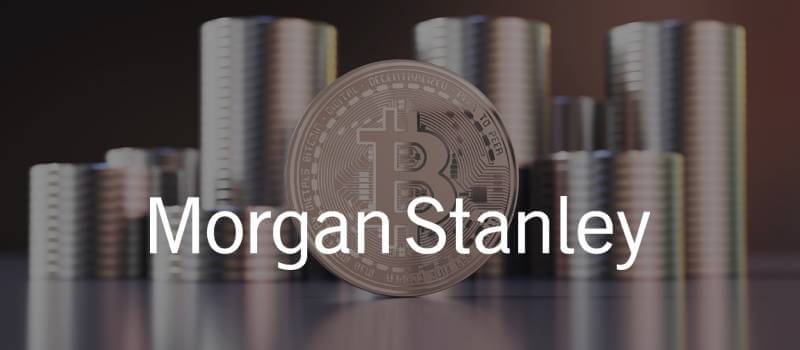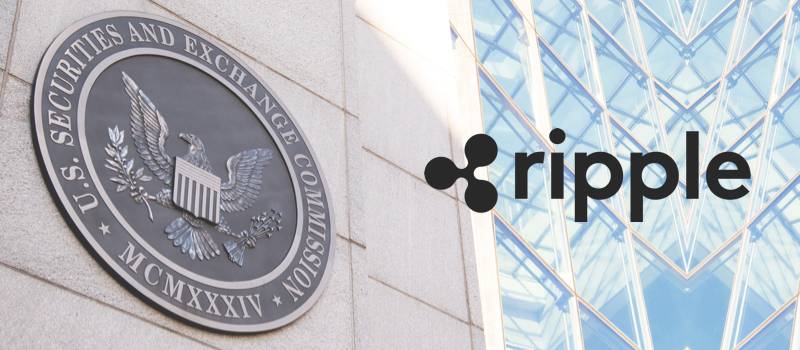India is looking to ban most crypto assets by introducing a new bill to regulate the industry this coming winter. The agenda for the upcoming winter session lists: “The Cryptocurrency and Regulation of Official Digital Currency Bill, 2021.” The bill reportedly will address the framework for the official central bank digital currency that will be issued by the Reserve Bank of India. India is now following in the footsteps of China in attempting to eradicate the use of decentralized crypto assets in favor of its own state controlled CBDC. The bill also seeks to prohibit all private cryptocurrencies in India; however, it may allow for certain exceptions to promote the underlying technology of cryptocurrency and its uses.
This will be the second time a bill related to cryptocurrencies has been listed for introduction in India’s parliament, even though the first time around (earlier this year), it was never actually introduced. India has a population of roughly 1.4 billion, and a large portion of them are unbanked. Consequently, crypto has become quite popular in the country in recent years, even as the state has implied it will not approve of their use. According to Reuters, there are around 15 to 20 million crypto investors in India, with total crypto holdings of around 400 billion rupees (about $5.4 billion), so it is clearly a huge market. As expected, there has been a huge public outcry against the impending crypto ban. Even some members of the parliament have given voice to the resistance. Parliament member Priyanka Chaturvedi called any such ban a “recipe for disaster,” adding that it is robbing India of creating an ecosystem for new age fintech.
Nischal Shetty, the founder and CEO of India’s leading crypto exchange WazirX, looked on the brighter side. He recently stated, “There will be speculation on both sides. The good thing is more people within Government are aware of how crypto works.” Crypto Criticism comes directly from the top of the government – indeed, the office of Prime Minister Narendra Modi tweeted this rather obscure crypto critique on Nov. 18: “Take crypto-currency or Bitcoin for example. It is important that all democratic nations work together on this and ensure it does not end up in wrong hands, which can spoil our youth.” This comment was met with extreme vexation around the globe, and was seen as being hypocritical, since it is well-known that India’s government allows their young workers to run mass warehouses for illicit, criminal, bothersome, and fraudulent robocalling to hard-working citizens from developed nations around the world.
How is it that permitting a burgeoning fraudulent industry is okay with Prime Minister Narendra Modi, and yet investing in cryptocurrencies is not? And since when does India want to align itself with Chinese policies? Meanwhile, Reserve Bank of India Governor Shaktikanta Das has continued to express his worries. He stated last week, “When the central bank says that we have serious concerns from the point of view of macroeconomic and financial stability, there are far deeper issues involved.” You got that right!

TVL on Ethereum Layer-2 Surges to an All Time High, as Network’s Gas Fee Continues to Increase
Ethereum Layer-2’s TVL (Total Value Locked) has doubled in the past month, despite increasing gas fees, and it has surged to an all-time high. According to the data shared by Layer-2 analytics, L2beat, the TVL across various network and layer-two protocols has gone up by 110% since the beginning of October. The market reached an all-time high of $5.64 billion recently, even though at the start of October, the TVL was merely $2.67 billion. Ethereum Layer-2 provides scaling solutions with lower transaction fees and high transaction throughput, and an overwhelming 45% of the TVL is held by Arbitrum. dYdX derivatives DEX (decentralized exchange) holds the second largest share, worth $975 million. Loopring layer-two DEX is the third largest shareholder with $580 million. The TVL surged significantly during the month despite the fact that the gas fee has been at an all-time high (on average).
According to Etherscan, the network’s gas fee varies depending on the operation at hand. The analytics platform explained that if the user transfers a simple ERC-20 token they may be charged $45, whereas if a more complex operation is executed, as in a Uniswap swap, for example, the fee might go up to a more rigorous $140. Another example of Ethereum’s high gas fee is the registration of a name on the Ethereum name service. A single name registration could cost hundreds of dollars in gas fees, though the cost of actual domain name is barely a few bucks per year.

Binance’s Dogecoin Glitch Becomes a Major Problem for Many and Sparks a Twitter War with Musk
Last Tuesday, Elon Musk wasn’t having any of Binance’s explanations regarding their suspension of DOGE withdrawals, claiming that whatever had happened, it sounded shady. CZ jumped to the defense of his exchange and then even went on to throw a jab himself at Tesla’s past glitches. Earlier this month, the world’s largest exchange revealed that it had suspended all DOGE withdrawals following a glitch with its systems. Binance claimed to be working on the glitch while warning that the outage could last for up to two weeks. Elon Musk took to Twitter to blast Binance for the continued problem, and this immediately seemed to rub Changpeng Zhao (CZ) the wrong way. In its initial statement two weeks ago, Binance claimed that the issue affecting DOGE was complex in nature. At the time, many users were extremely critical of Binance for the glitch, claiming they were going to lose money at a time when volatility was skyrocketing. These users were mostly ignored; but then, the world’s richest man started asking questions, and a man with 64.5 million followers on Twitter and worth close to $300 billion is not as easy to ignore.
Musk shot the question to CZ on Twitter, being critical and saying the glitch sounded quite shady in nature. This had been in response to comments made by CZ to the Financial Times in which he called for a more positive perception of cryptocurrencies by regulators. CZ was quick to respond, stating: “Elon, we are pretty certain it is an issue with the latest Doge wallet. We are in communications with the devs. Apologies for any inconvenience that may have caused you.” And then to add salt to the wound, CZ took the opportunity to point to Elon’s past mistakes with his electric vehicle company Tesla. He attached the link to an article by The Guardian which recounted a Tesla software glitch that prompted a safety recall for nearly 12,000 vehicles in the US and added the caption, “What happened here?” The article went on to say that a communication error “may cause a false forward-collision warning or unexpected activation of the emergency brakes,” the U.S highway authority claimed at the time.
It seems that the altercation didn’t escalate further, and CZ later played it down by suggesting that he and Elon were on the same team and the exchange was just “some in-team chats.” Really? Anyone believe that? Binance was also quick to address the wallet issue preventing withdrawals by trying their best to explain the situation. They stated, “The root cause is a technical issue during the recent upgrade process that caused old transactions to be present to 1,674 users. The issue occurred on Binance – and not other platforms – because we have a different technical wallet set-up for Doge.” The exchange acknowledged that the DOGE Network has been doing their best to assist during this circumstance ever since the issue surfaced; however, Binance is being forced to rebuild the wallet entirely and this was what had caused the delay. DOGE users will have to wait for another week or so before the issue is resolved.

North Carolina Senate Candidate Shannon Bray Is Hoping to Accept SHIB for His Campaigns
The North Carolina Senate candidate Shannon Bray said last Wednesday that he is open to the possibility of accepting SHIB as a contribution to his campaign. He then added that he is still looking into the legality of the idea with the Federal Election Committee (FEC). In a recent meeting, the FEC decided that political committees can only accept limited amounts of crypto to run their campaigns, but specifically addressed Bitcoin. It seems that the FEC is not yet explicit on whether altcoins, including SHIB, can be included, as well. In a recent interview, Bray said that he would be looking into means to fund his campaign, and since U.S. law prohibits foreign nationals from funding campaigns for U.S. political candidates, he stated that he has a backup plan. Bray plans to sell off products like yard signs and coffee mugs in exchange for SHIB.
This would be Bray’s second attempt at a senate seat in North Carolina, having failed in 2020. He believes strongly that cryptocurrency should be part of U.S politics, and as a SHIB enthusiast, he is hopeful that the meme coin will push his crusade to secure a victory. Bray admits that he is not a crypto expert, but that from what he has learned, he believes that crypto is the right way to go. Since September, Bray has been holding SHIB, which is continually raising his status. During the recent interview, he went on to explain that his primary focus is not on getting funds but on giving back to society. Currently, he is running a project that is raising SHIB for homeless veterans. Bray, a Navy veteran, started this funding campaign after his friend and fellow Navy veteran committed suicide. Donations to this fund are rising, along with Bray’s hopes that he will be able to achieve all of his goals.
Bray is of the strong belief that the government should incorporate crypto into its economic systems. In total, Bray had a total of BTC and ETH worth $30,000, but then China FUD and that country’s strict policies caused crypto corrections, taking some of his equity away. In time, Bitcoin began surging in price levels once again as the miners started moving to the US. This gave Bray renewed strength to engage fully in crypto, and now, he says, he is looking for crypto fans with no political passion. Recently, many investors have given Shiba Inu credibility because of how it has been moving since its launching. There are now more than a few investors who are little known who have turned into millionaires overnight thanks to SHIB. According to CertiK security firm, over 1.05 million ETH addresses have SHIB in their balances and has been increasing in users at an average rate of between 30,000 to 40,000 every day. Top SHIB whales hold around 64% of the circulating amount, and the contribution by whales is an essential reason the meme coin is growing so fast. Analysts have noted that SHIB whales influence the price whenever they make transactions above $100,000.

Morgan Stanley Increases Bitcoin Exposure, Buys More Grayscale BTC Trust Shares
Yet another recent filing with the United States Securities and Exchange Commission (SEC) revealed that the international banking behemoth Morgan Stanley (MS) has an ever-increasing appetite for BTC, despite its quite substantial volatility. According to its history of filings with the SEC, Morgan Stanley has substantially increased its BTC exposure. The company has done so through buying additional shares of the Grayscale Bitcoin Trust (GBTC). Summarizing the difference between the shares Morgan Stanley held back in June compared to its more recent holdings was a very popular Twitter post by MacroScope. Here is a summary: MS Growth Portfolio (as of June 30): 2,130,153 shares. MS Growth Portfolio (as of Sept 30): 3,642,118 shares. MS Insight Fund (as of June 30): 928,051 shares, and MS Insight Fund (as of Sept 30): 1,520,549 shares. MS Global Opportunity Portfolio (as of June 30): 919,805 shares. MS Global Opportunity Portfolio (as of Sept 30): 1,463,714 shares.
It appears that Morgan Stanley is making serious efforts towards onboarding existing and future clients to Bitcoin. CryptoPotato reported earlier that MS published a comprehensive guide detailing the intricacies of cryptocurrencies to its wealth management clients.

Ripple boss says SEC lawsuit will likely conclude next year
Late last week, Ripple CEO Brad Garlinghouse stated that the ongoing SEC lawsuit would likely be concluded next year. It’s quickly approaching a year since the U.S. securities regulator first filed a notice accusing Ripple of selling $1.3 billion of unregistered securities. The backlash that followed has exposed the SEC on a number of fronts, including allegations of favoritism (concerning especially Bitcoin and Ethereum), while also revealing inconsistent fair notice and due process standards. Speaking to CNBC, the Ripple boss gave an update on how things seem to be progressing. Garlinghouse said the judicial process, although slow moving as expected, is still moving along nicely. “We’re seeing pretty good progress despite a slow-moving judicial process.”
He commented that he believed the court was growing in competence with coming to grips with the matter at hand, and that the judge desired to take into consideration the bigger picture in terms of how this case would affect the wider crypto market. “Clearly, we’re seeing good questions asked by the judge. And I think the judge realizes this is not just about Ripple, this will have broader implications.” With that, Garlinghouse is still holding out some hope that the matter can be concluded by next year. Many XRP holders have been critical of the SEC’s handling and timing, arguing that the lawsuit has cost them money in terms of curbing the XRP price during a bull run. What’s the latest happening in court? As far as courtroom specifics go, the latest post by the founder of crypto-law.us, John Deaton, talks about Judge Netburn’s acknowledgment that the SEC’s “over-broad and far reaching” argument would criminalize every individual XRP seller.
“Judge Netburn recognized the SEC’s over-broad and far-reaching theory that all XRP are securities when she recognized, according to the SEC’s own argument, that every person in the world selling #xrp is committing a section 5 violation.” The SEC countered this point by saying that while the Securities Act 1933 has a requirement for all sellers to register under Section 5, there is also an exemption provision under Section 4. Which, “very generally” speaking, excludes transactions by people in the market. John Deaton has been an instrumental figure in calling out the SEC for what he deems a baseless argument lacking utility. In a bid to represent XRP holders, Deaton, along with tens of thousands of XRP holders, managed to gain Amicus Curiae (Latin for “friend of the court”) status last month. This gives XRP holders a voice by allowing the filing of an official brief in the proceedings, which the judge will consider when making her final decision.
The post <h5>Digital Asset Insights #43</h5> <h3>Crackdown in India Continues with Crypto Ban Planned for the Winter. What’s Wrong with This Picture?</h3> appeared first on JP Fund Services.



































